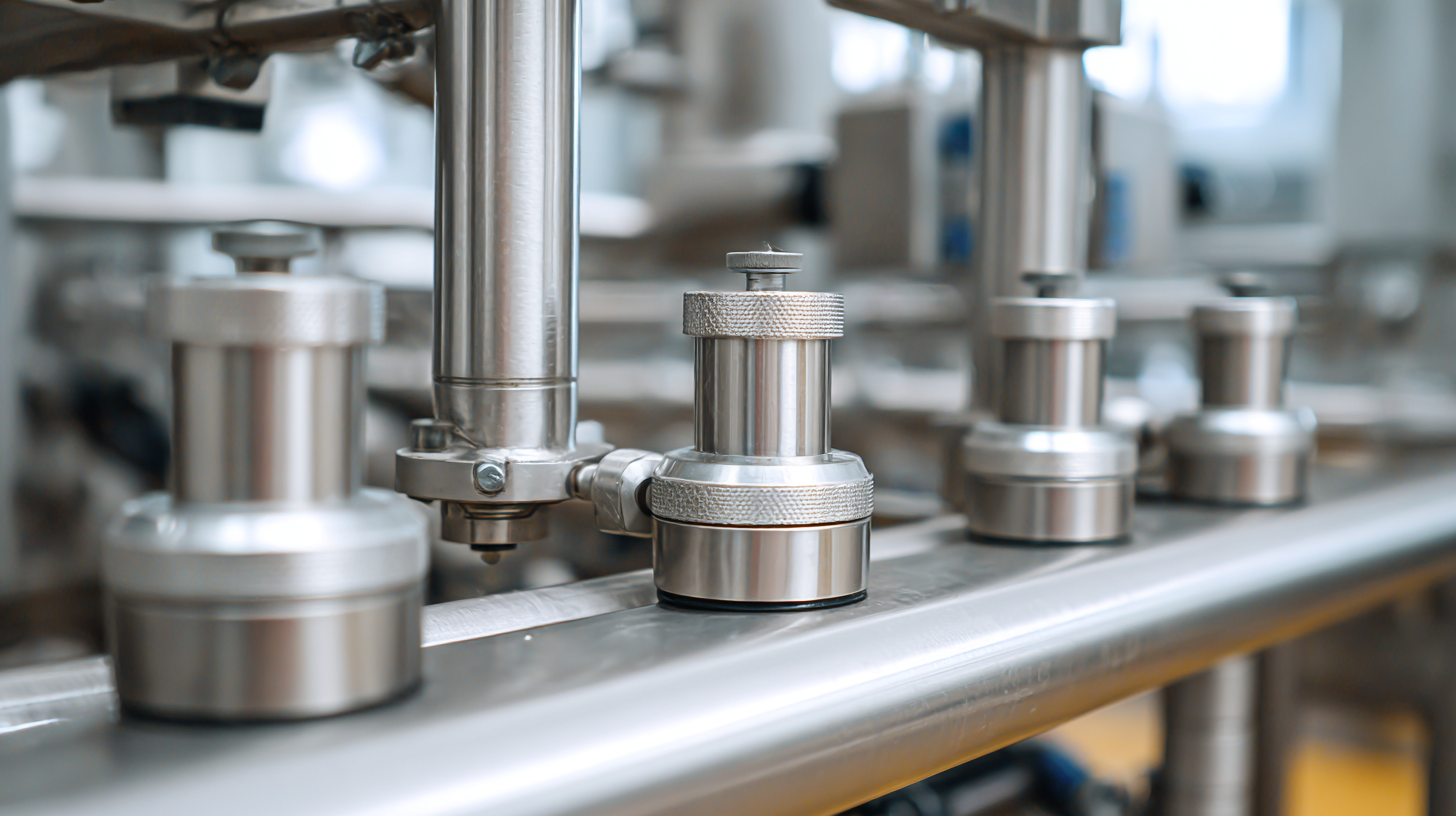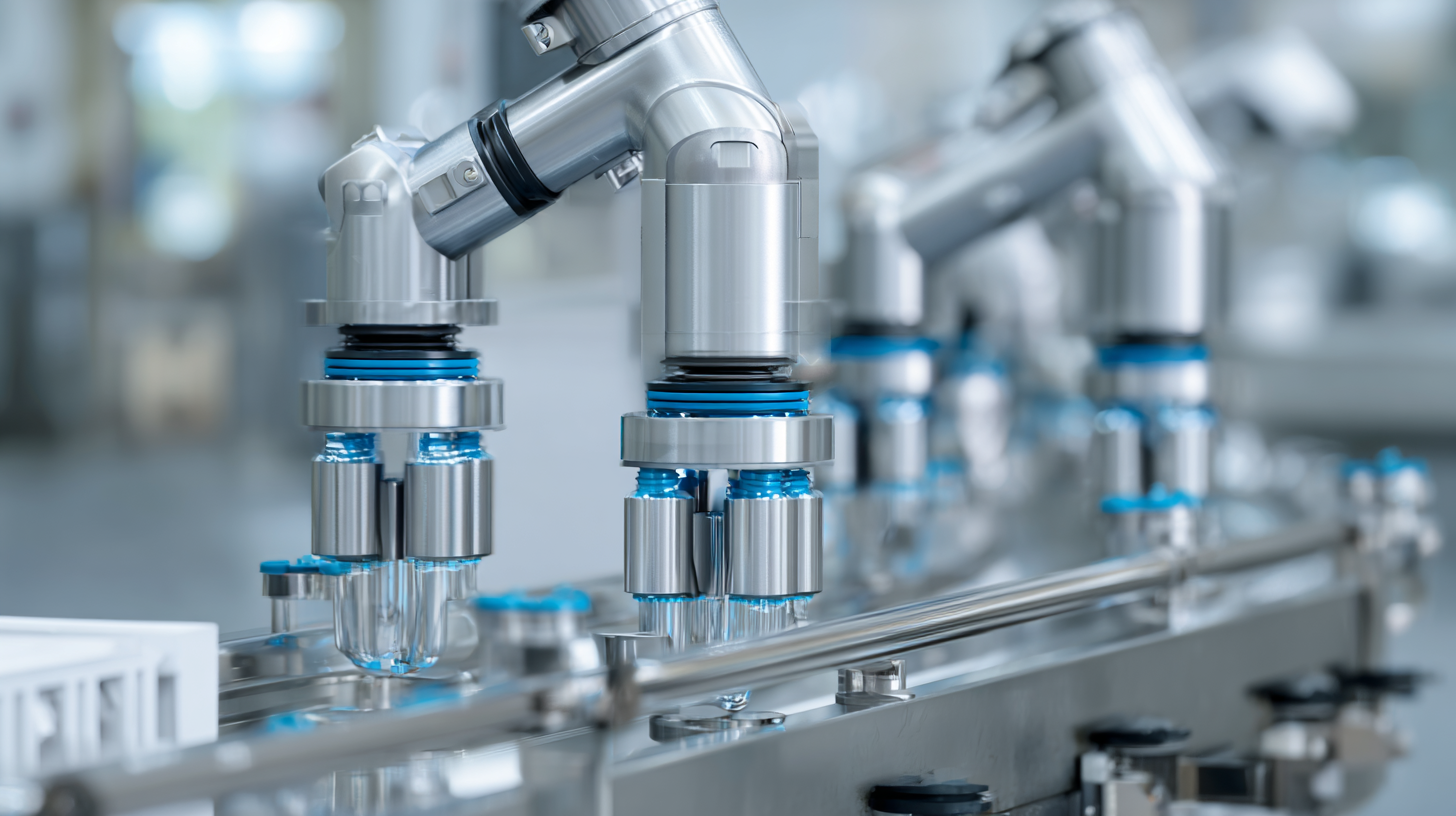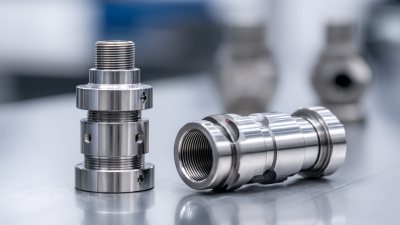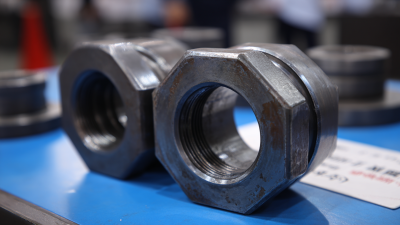Understanding the Importance of Sanitary Connectors in Preventing Contamination in Food and Beverage Industries
Sanitary connectors play a crucial role in the food and beverage industries, ensuring the integrity and safety of products from production to consumption. As processes surrounding food and beverage production become increasingly sophisticated, the need for effective contamination prevention measures has never been more essential. These specialized connectors are designed to maintain a hygienic environment by preventing the ingress of contaminants during the transfer of liquids and solids, which can otherwise lead to foodborne illnesses or product spoilage. Understanding the importance of sanitary connectors not only highlights their role in regulatory compliance but also underscores their contribution to product quality and consumer safety. As we delve deeper into the subject, we will explore various types of sanitary connectors, their applications, and best practices for their maintenance and usage, ultimately demonstrating how they are integral to the operational efficacy of food and beverage industries.

Importance of Sanitary Connectors in Food and Beverage Hygiene Standards
Sanitary connectors play a crucial role in maintaining hygiene standards within the food and beverage industries. These specialized fittings are designed to minimize the risk of contamination during the transfer of liquid products. They are crafted from materials that are not only durable but also resistant to corrosion, ensuring that they do not leach harmful substances into food or beverages. The smooth surfaces of these connectors prevent bacteria buildup, making them essential for compliance with stringent hygiene regulations.
Moreover, the importance of sanitary connectors extends beyond mere compliance. They facilitate efficient cleaning processes, which are vital in preventing cross-contamination between different production batches. By enabling quick disassembly and thorough cleaning, these connectors help ensure that production lines remain sterile. In an industry where safety and quality are paramount, investing in high-quality sanitary connectors is not just a regulatory requirement but also a commitment to delivering safe and clean products to consumers.
Key Materials Used for Effective Sanitary Connectors in Industry Applications
Sanitary connectors play a crucial role in the food and beverage industries by ensuring that the systems used for processing, transporting, and storing products remain contamination-free. The choice of materials for these connectors is vital to maintain hygiene and prevent any adverse interactions with the food or beverage being handled. Engineering plastics have emerged as preferred materials in this context, offering durability and resistance to various chemicals and temperatures.
Among the key materials used are polyamide (PA), which is known for its excellent strength and chemical resistance; polycarbonate (PC), valued for its transparency and impact resistance; and styrene copolymers like acrylonitrile butadiene styrene (ABS) and styrene acrylonitrile (SAN), which provide robustness and good thermal stability. Additionally, polyoxymethylene is often selected for its low friction properties, making it ideal for connector applications where smooth operation is essential. The careful selection and application of these materials in sanitary connectors are instrumental in safeguarding public health and ensuring compliance with industry standards.
Understanding the Importance of Sanitary Connectors in Preventing Contamination in Food and Beverage Industries
| Material Type | Properties | Applications | Contamination Prevention |
|---|---|---|---|
| Stainless Steel 304 | Corrosion resistant, durable | Food processing, brewery | Minimizes bacterial growth |
| Silicone | Flexible, heat resistant | Dairy industry, beverage dispensing | Non-reactive with food |
| PTFE | Chemical resistant, low friction | Pharmaceutical, food processing | Resists sticky residues |
| Polypropylene | Lightweight, low cost | Food storage, plastic containers | Easy to clean and sanitize |
| Rubber | Elastic, shock absorbing | Sealing applications | Provides tight seals |
Best Practices for Installing and Maintaining Sanitary Connectors
Proper installation and maintenance of sanitary connectors are crucial for ensuring the integrity of food and beverage systems. When installing these connectors, it is essential to follow manufacturer guidelines carefully to avoid misalignments that could lead to leaks. Before installation, all surfaces should be thoroughly cleaned and sanitized to eliminate any contaminants. Connecting surfaces must also be inspected for damage or defects, as even minor imperfections can serve as breeding grounds for bacteria.
Regular maintenance is equally vital to prevent contamination. Implementing a routine inspection schedule allows for early detection of wear and tear. It is advisable to regularly disassemble and clean the connectors, using appropriate sanitizing agents that do not leave residues. Additionally, employing a proper torque specification during reassembly ensures a secure fit and helps maintain the integrity of the connection. By adhering to these best practices, food and beverage industries can significantly reduce the risk of contamination and maintain product safety and quality.
Importance of Sanitary Connectors in Preventing Contamination
Identifying Common Contamination Risks Related to Poor Connector Choices
 In the food and beverage industries, the choice of connectors plays a crucial role in maintaining sanitary conditions. Poor connector choices can lead to various contamination risks. For instance, using non-food-grade materials can introduce harmful substances into products, compromising safety and quality. Additionally, connectors that are not designed for easy cleaning can harbor bacteria and residues, creating environments conducive to microbial growth.
In the food and beverage industries, the choice of connectors plays a crucial role in maintaining sanitary conditions. Poor connector choices can lead to various contamination risks. For instance, using non-food-grade materials can introduce harmful substances into products, compromising safety and quality. Additionally, connectors that are not designed for easy cleaning can harbor bacteria and residues, creating environments conducive to microbial growth.
Another significant risk arises from the incompatibility of connectors with specific processes or products. When connectors fail to provide a secure seal, leaks can occur, leading to cross-contamination between different products or batches. Furthermore, poorly designed connectors may present challenges in maintenance, increasing the likelihood of damage or wear over time, which can further exacerbate contamination issues. Therefore, selecting the right connectors is essential to ensure the integrity of the food and beverage supply chain, safeguarding both consumer health and product standards.
Regulatory Compliance and the Role of Sanitary Connectors in Food Safety
In the food and beverage industries, ensuring safety and compliance with regulations is paramount.
 Sanitary connectors play a crucial role in maintaining product integrity and preventing contamination. These specialized fittings are designed to create airtight seals that prevent microbial ingress and contamination during the production process. Regulatory bodies such as the FDA and USDA emphasize the necessity of using sanitary connectors to align with stringent food safety standards. By adopting these connectors, companies can significantly mitigate the risk of foodborne illnesses.
Sanitary connectors play a crucial role in maintaining product integrity and preventing contamination. These specialized fittings are designed to create airtight seals that prevent microbial ingress and contamination during the production process. Regulatory bodies such as the FDA and USDA emphasize the necessity of using sanitary connectors to align with stringent food safety standards. By adopting these connectors, companies can significantly mitigate the risk of foodborne illnesses.
Tips: When selecting sanitary connectors, ensure they are made from materials that comply with industry standards, such as 316 stainless steel, which provides excellent corrosion resistance. Additionally, regularly inspect and clean these connectors to uphold hygiene and prevent buildup of contaminants.
Moreover, compliant sanitary connectors facilitate easier cleaning and maintenance, helping organizations to maintain their compliance with health regulations. By integrating proper designs that minimize crevices and dead spaces, manufacturers can streamline their cleaning processes while enhancing the overall safety of their products.
Tips: Consider implementing a sanitation schedule specific to the maintenance of sanitary connectors, using food-safe cleaning agents to ensure thorough disinfection without compromising the materials.
Related Posts
-

Ultimate Sanitary Connectors Checklist for Ensuring Compliance and Efficiency
-

6 Tips to Choose the Right Sanitary Connectors for Optimal Hygiene Compliance
-

Exploring Sanitary Connectors Market Trends at the 138th Canton Fair 2025
-

The Ultimate Guide to Choosing the Best Sanitary Tubing for Your Business Needs
-

Unlocking Global Opportunities for Weld Fittings at the 138th Canton Fair 2025 in China
-

Top Strategies for Enhancing Performance with Fittings Valves